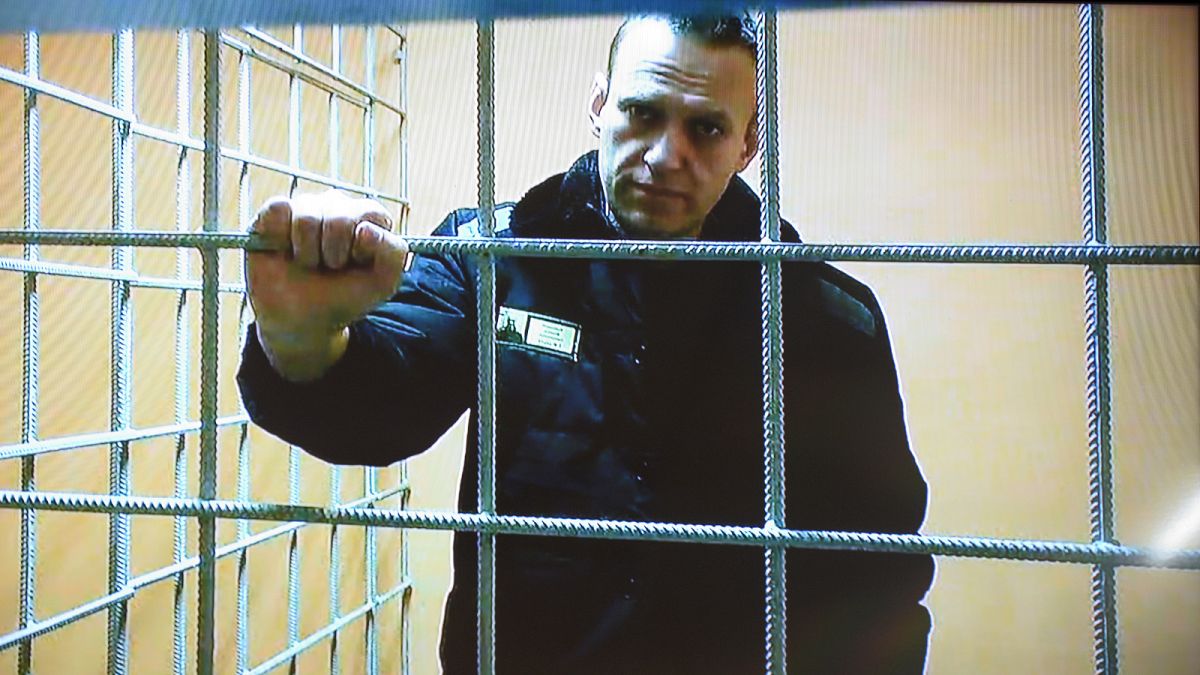Navalny said that he had "no regrets" about his return to Moscow from Berlin, despite his incarceration.
Monday marks a year since Russian authorities detained prominent government critic Alexei Navalny on arrival from Germany, where he was recovering from a poisoning attack he and the West blame on the Kremlin.
He was then given a jail term of more than two years for breach of parole in a financial fraud case on February 2, 2021. He is currently serving the term in a penal colony in the Vladimir region of Russia.
His poisoning and arrest sparked widespread condemnation abroad as well as sanctions from Western capitals.
Last year, the European Parliament awarded Navalny the Sakharov Prize for Freedom of Thought after he was nominated but passed over for the Nobel Peace Prize.
On Monday, Navalny said that he had "no regrets" about his return to Moscow from Berlin. "I did it, I don't regret it for a second. And I will continue to do it," he added in his Instagram post.
"Having served my first year in prison, I want to tell everyone exactly what I shouted to those gathered outside the court when a convoy led me to a police van: don't be afraid of anything."
Investigators last year launched a new extremism probe against Navalny that could see the opposition leader spend up to 10 more years in jail.
Navalny's political organisations were also then branded "extremist" and shuttered by staff fearing prosecution.
Almost all of his top allies have since fled the country.
Russia ramps up crackdown on dissent
Last month, investigators questioned several former regional Navalny coordinators, including Ksenia Fadeyeva, who is also a local lawmaker in the Siberian city of Tomsk.
Allies say she is facing up to 12 years in prison for working with an extremist organisation.
Meanwhile, just days ahead of the anniversary of Navalny's arrest, Russia branded two of his key allies as "terrorists and extremists", a government database showed on Friday.
Leonid Volkov, 41, and 33-year-old Ivan Zhdanov, who both left Russia as authorities were clamping down on the opposition and dissenting voices, were seen on Friday in the database compiled by the Federal Service for Financial Monitoring.
The decision puts them on a par with right-wing nationalist groups and foreign terrorist organisations, including the Taliban and the so-called Islamic State group.
Zhdanov led Navalny's Anti-Corruption Foundation, which produced hugely popular video probes accusing the authorities of systemic graft, while Volkov headed Navalny's network of regional offices.
Zhdanov was dismissive of the news, telling the liberal-leaning Echo of Moscow radio station that the designation "will not affect me and my life in any way".
On Twitter, he wrote that he believes the measure will become more widespread, describing himself and Volkov as "pioneers for this kind of nonsense".
The move is the latest in a protracted and historic crackdown on dissent in Russia that intensified after Navalny's arrest and jailing.
In December, authorities have designated dozens of rights groups, media outlets, journalists, and anti-Kremlin figures as "foreign agents", and courts ordered the shutdown of the country's most prominent rights group, Memorial.
Founded in 1989 by Soviet dissidents including Nobel Peace Prize laureate Andrei Sakharov, the group chronicled Stalin-era purges and campaigned for the rights of political prisoners, migrants, and other disadvantaged groups.
The rulings were denounced by the United Nations and Western governments, which accused Moscow of stifling freedom of expression.
